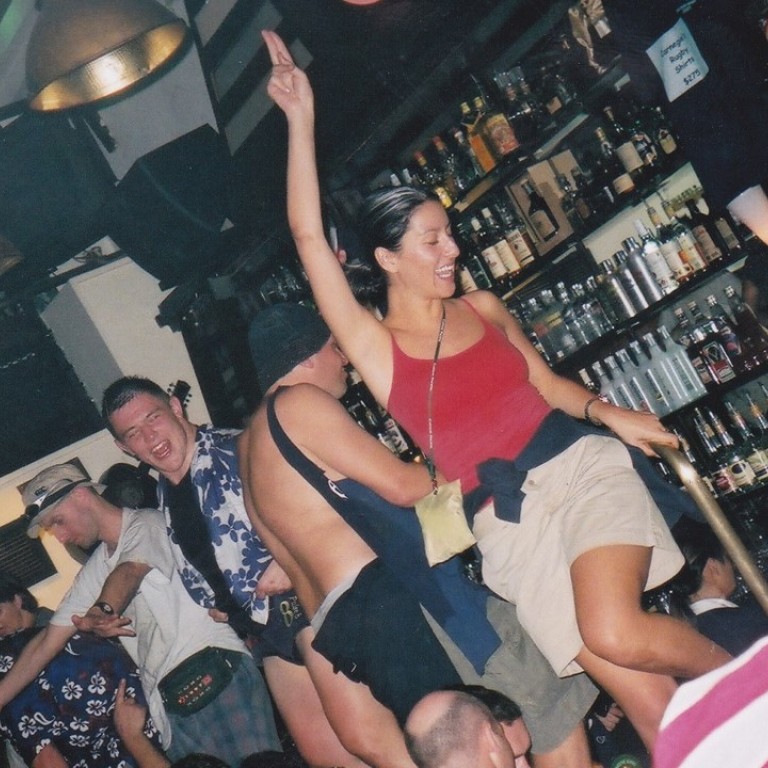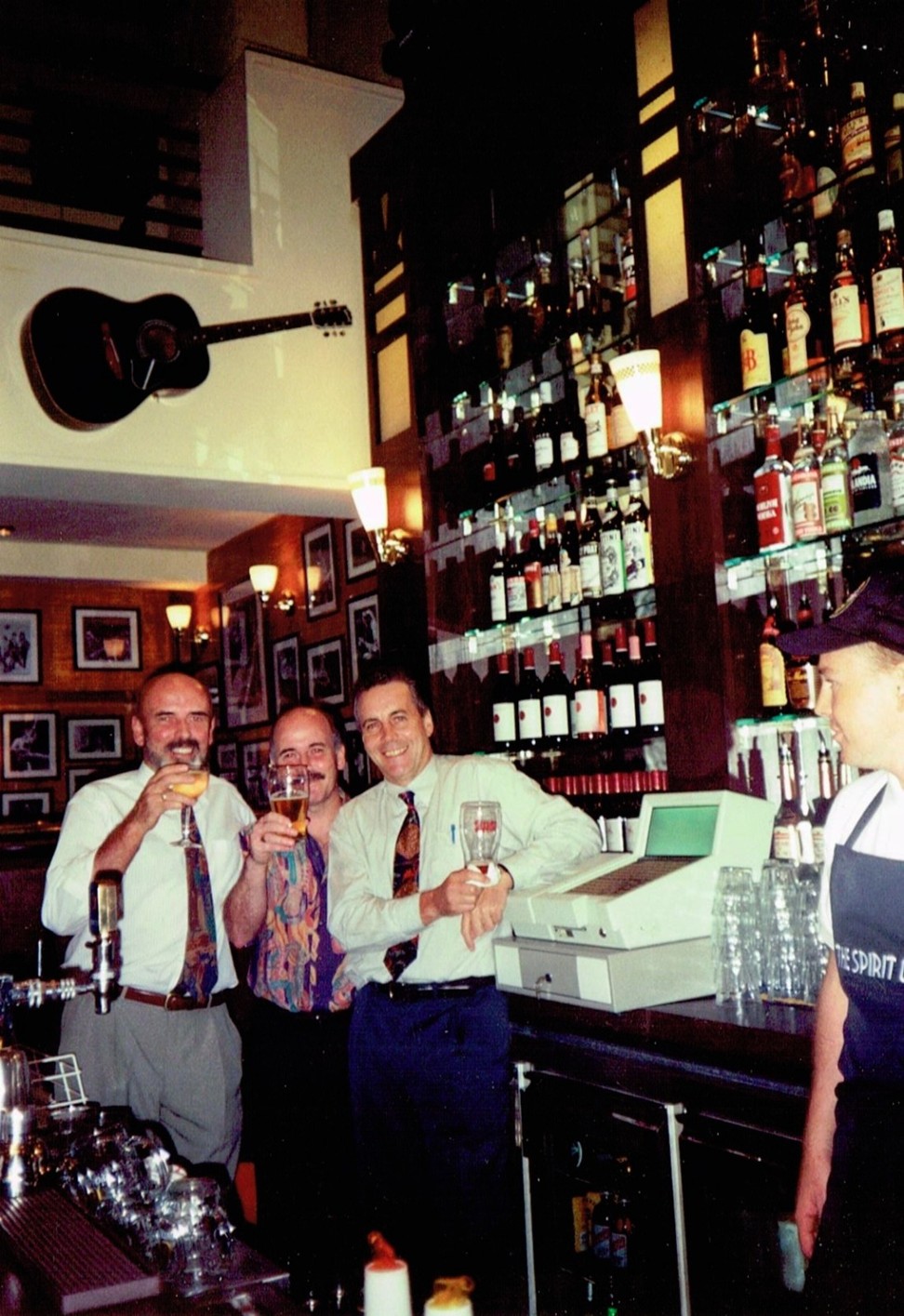
One more shot for Carnegie’s? Investors in talks to save beloved Hong Kong bar
With the popular night spot’s future hanging in the balance, City Weekend explores what could be killing the city’s old-style bars
Infamous Hong Kong party bar Carnegie’s could be saved days ahead of a planned closure if its owners can secure a deal with investors this month, its bar manager has said.
Duncan Smith, who has worked at the bar for 17 years and been manager for three, told the Post this week he hoped Carnegie’s would be saved if the owners could strike a deal, but would not reveal details about the potential investors.

“After [the closure] became public knowledge, people began looking to invest to buy the place,” he said. “The bar will stay open while negotiations are ongoing. I hope if we can secure investors, then it will continue as it is, but if we sell it outright then it could be rebranded or changed in some way.”
Carnegie's owners originally called time on the 23-year-old business after being hit with a 20 per cent rent rise and growing competition from bars opening across Hong Kong Island.
Smith believed Carnegie's still had the potential to succeed because people liked its unpretentious party atmosphere.
“We have never tried to be anything we are not,” he said. “The early 2000s were our glory days. It was packed here every night. It was party night all the time.”
Brett Elliot, an Australian who owns a digital agency and worked as a Carnegie's barman for nine months in 1993, said primarily “the greed of property owners” was threatening the bar’s future.
He said he and his colleague were the first to try dancing on Carnegie's bar, and recalled how it had to be reinforced after collapsing one night. The venue had subsequently become somewhere people could “do something a bit naughty”.
“It is good to be able to break the rules sometimes – it is exciting,” he said.
Fierce competition
Hong Kong’s bar scene is changing at a rapid pace as the public’s thirst for innovative drinks served in quirky settings contributes to the demise of old-style pubs, bar owners and commentators have said.
The well-documented popularity of “Club 7-Eleven”, whereby revellers drink cheaply in the street and spend small amounts of cash in bars, has also contributed to the downturn, with some night spots in Lan Kwai Fong complaining of a 20 per cent dip in sales since 2015.
A post shared by Oli Miles (@miler88) on Nov 17, 2016 at 7:59pm PST
JR Robertson, owner of Hong Kong Brew House, which closed on June 18 this year after 13 years of trading, said the bar scene was “changing in a lot of different directions” but thought customers would miss the “relaxed and not pretentious atmosphere” that his bar provided.
“When I first came to Hong Kong in the 1970s, the bar scene was quite small,” he said. “But now we have all sorts of fancy places. I guess I modelled Brew House on those older American style bars, famous for peanut shells being scattered on the floor.
“Nowadays people are into these hot cocktail bars, and at the same time there is the obsession with craft beer. This particular scene is exploding – it is bizarre.”
Hong Kong’s bars have also been hit by the decline in tourist numbers; last year visitor numbers dropped by 4.5 per cent, the worst figures since 2003 when the city was struck by the outbreak of severe acute respiratory syndrome, during which 299 people died.
Professor Brian King, associate dean in the School of Hotel and Tourism Management at Hong Kong Polytechnic University, suggested the decline of old-style bars was partly due to the stagnation of tourist numbers from Europe and North America, which Hong Kong’s drinking spots generally relied on for their clientele, as mainland Chinese visitors were traditionally less likely to frequent them.
He said the simultaneous decline of expatriates working in the banking sector had also contributed to falling bar sales.
“There are bars that are more multicultural, and there are bars that have traditionally been more gweilo, and maybe now there are just not enough gweilos around,” he said. “Those bars have had the luxury of a boom time, when there were men in suits around, but now the banking sector is off its peak, so you need to attract both men and women, and perhaps be more family orientated.
“Some bars are able to adapt, but some do not want to.”
Out with the old, in with the new
By contrast some new bars, such as Mr and Mrs Fox in Quarry Bay and Little Creatures in Kennedy Town, were prospering by providing a modern twist on the traditional pub, Robertson said.
Austin Liu, general manager of Swire Restaurants, which owns Mr & Mrs Fox, said the vintage themed pub had been buoyed by a lot of positive media coverage when it opened in 2015, and believed customers were attracted to its selection of craft beers, as well as a substantial food menu, which contributed to about 60 per cent of its sales.
“We offer a friendly and casual but attentive service,” he said. “Our bar design is playful but also provides a calm atmosphere.”
King said that as the range of bars had grown, customers were increasingly looking for a unique night, with unusual drinks and an interesting setting.
He said the extension of the MTR Island Line meant revellers were increasingly attracted to areas such as Sai Ying Pun, Sheung Wan, Quarry Bay and Kennedy Town, over the traditional night spots of Lan Kwai Fong and Wan Chai.
“It is all about experience,” he said. “Technology is driving and accelerating that. People are going for drinks in a space where they want to have a great experience. Customers have a lot more options now.”

